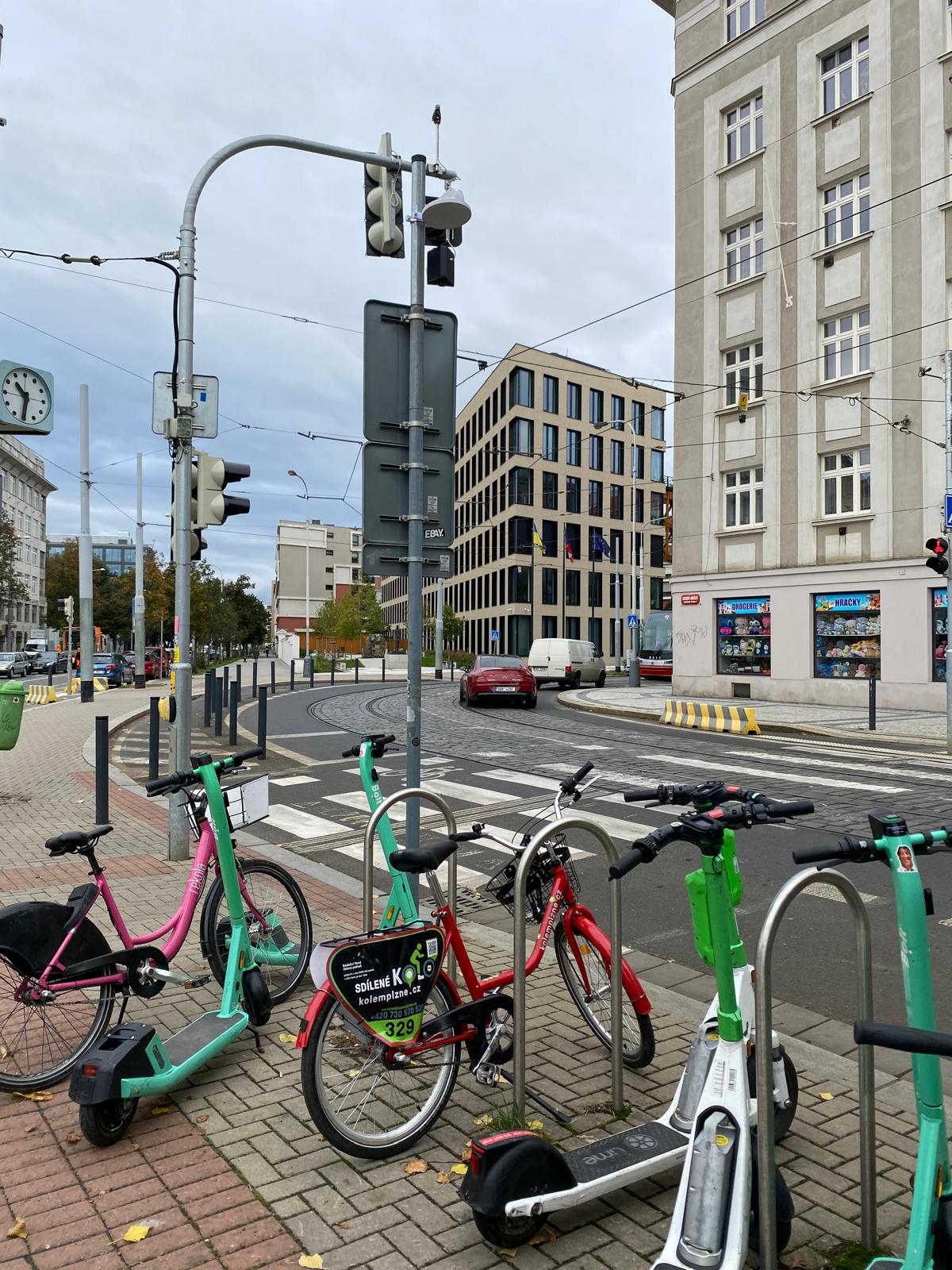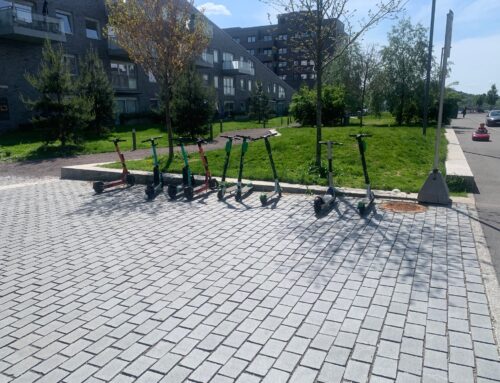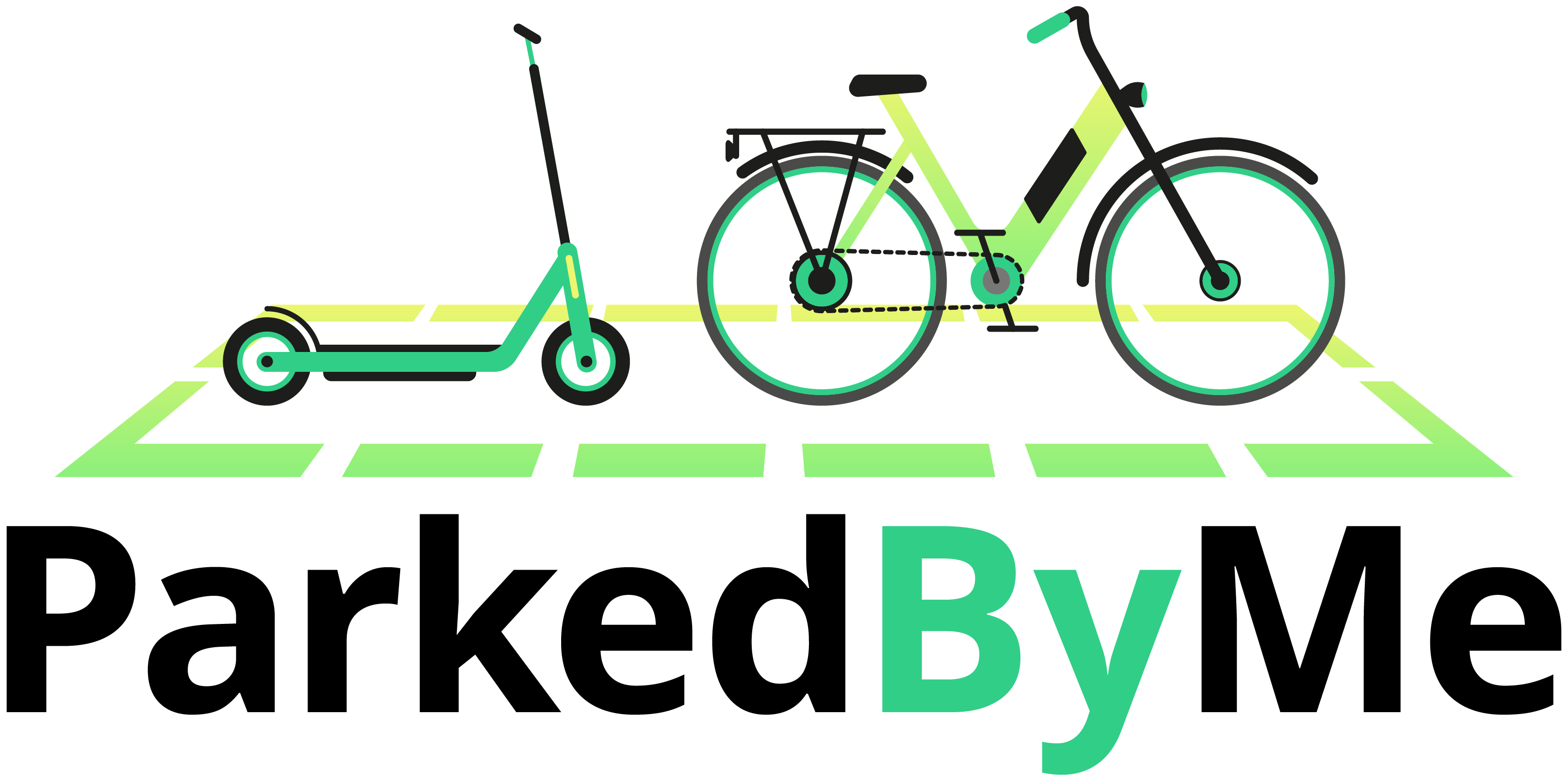Kick-scooter operators in Madrid have been caught off guard by a sweeping ban on kick-scooters in the city, unexpectedly announced by the mayor in September this year. The operators failed to provide the city with proper parking for shared kick-scooters and data on their use. Madrid is thus following a negative trend that is emerging in European capitals such as Paris and Barcelona. Prague, on the other hand, is testing ParkedByMe technology for high-precision parking of shared bikes and scooters. The project is supported by the EIT Urban Mobility, an initiative of the European Institute of Innovation and Technology (EIT), a body of the European Union.
Overview in Europe
The situation in European and Czech cities is very diverse. In Spain, Germany or Belgium it is common for bike and kick- scooter sharing operators to obtain a license or permit from the city to operate their services. This allows cities to control their operations for the safety of their residents, while using the license revenue for their own needs.
A closer look to Prague
In the Czech Republic, cities have taken different approaches to shared micro-mobility. In some places, they are going the memorandum route and relying on a proactive approach from both sides. In Hradec Kralove, where fees were charged for individual parking spaces, the city eventually decided to withdraw these funds and allow only shared bikes after a short period of the return of TO-MI electro kick-scooters. In Pilsen, on the other hand, dedicated parking spaces have not yet been established. Until the result of the tender for new operators is announced, residents can use KolemPlzne-branded shared bikes.
The operator KolemPlzne also accepted an invitation to test the high-precision parking technology with its bikes in Prague 7. “We introduced shared bikes in Pilsen because it makes sense for us, and we want to help with the development of urban cycling. And that’s why it makes sense for us to work together on the ParkedByMe project. We want to see shared mobility develop and we are happy to help,” says Hynek Horák, founder of KolemPlzne.
ParkedByMe technology for high-precision micromobility parking
The ParkedByMe technology project introduces a high-precision Bluetooth sensor technology that makes it possible to define a specific space for parking shared bikes, electric bikes and electric kick-scooters in cities with centimeter accuracy. This allows ParkedByMe to improve the situation with improperly parked shared vehicles and ensure that streets are safe for all residents. Additionally, it enhances the ability to provide the city with accurate and up-to-date data on bike and kick-scooter parking.

Parking space for micromobility vehicles using ParkedByMe technology
The pilot project is currently being tested in Prague 7, where suitable locations have been identified in collaboration with the Department of Transport. In these 25 pilot locations, high-precision Bluetooth sensors have been installed and the parking zones have been calibrated to ensure that shared bikes and kick-scooters respond accurately to the designated areas. The use of a shared mode of transport cannot be terminated until it is in a precisely defined parking zone.
The regulation of shared bicycles and kick-scooters is currently being prepared in Prague, with the participation of the Technical Administration of Communications, the Prague City Hall and the ICT Operator. In previous years, the research organisation PowerHUB, which is leading the ParkedByMe project, has organised several expert workshops for city representatives on the possibilities and good practice in setting up rules for cooperation between cities and operators of shared bikes and kick-scooters.
“We are of course available for joint discussions between operators and cities. We believe that shared micromobility is a good example of emission-free last-mile transport in cities often brimming with cars. We have been collecting insights from micromobility across Europe and we are happy to contribute with good practice,” adds Pavel Chroust, Head of Innovation at PowerHUB.
ParkedByMe, as a state-of-the-art solution for proper parking of bicycles and kick-scooters from the Norwegian startup SparkPark, attracted the attention of Transport Minister Martin Kupka at the URBIS – The Smart Cities Meetup conference in Brno, or the Governor of the Central Bohemian Region Petra Pecka at the regular FutureCityTech conference in Říčany.
The pilot project is implemented in cooperation with the Czech research organisation PowerHUB, the Norwegian startup SparkPark, the Spanish foresight organisation FACTUAL, with the support of the European Union through the EIT Urban Mobility.
For more information, please contact:
Marie Koflák, marie@powerhub.cz




